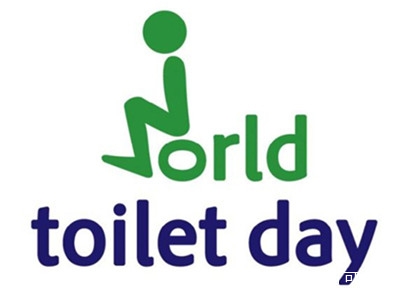Secretary-General’s Message on World Toilet Day
秘書長世界廁所日致辭
19 November 2013
2013年11月19日
Each year, more than 800,000 children under five die needlessly from diarrhoea – more than one child a minute. Countless others fall seriously ill, with many suffering long-term health and developmental consequences. Poor sanitation and hygiene are the primary cause. Worldwide, some 2.5 billion people lack the benefits of adequate sanitation. More than 1 billion people practice open defecation. We must break the taboos and make sanitation for all a global development priority.
每年,有80多萬名五歲以下的兒童死于腹瀉——每分鐘就有一名,而這本不該發(fā)生。還有無數(shù)的兒童身染重病,其中許多還因此留下長期的健康和發(fā)育后遺癥。衛(wèi)生條件和個(gè)人衛(wèi)生狀況差是這一現(xiàn)象的首要原因。在全球范圍內(nèi),約有25億人無法享有充分的衛(wèi)生條件。超過10億人露天排便。我們必須打破禁忌,努力讓人人享有衛(wèi)生條件,使之成為發(fā)展領(lǐng)域的一項(xiàng)全球優(yōu)先事項(xiàng)。
This first official observance by the United Nations of World Toilet Day is an opportunity to highlight this important topic. Sanitation is central to human and environmental health. It is essential for sustainable development, dignity and opportunity. Poor water and sanitation cost developing countries around $260 billion a year–1.5 per cent of their gross domestic product. On the other hand, every dollar invested can bring a five-fold return by keeping people healthy and productive. When schools offer decent toilets, 11 per cent more girls attend. When women have access to a private latrine, they are less vulnerable to assault.
今天,我們首次正式慶祝聯(lián)合國世界廁所日。借此機(jī)會(huì),可突顯這一話題的重要意義。衛(wèi)生條件是人類健康和環(huán)境健康的核心所在。就可持續(xù)發(fā)展、尊嚴(yán)和機(jī)會(huì)而言,衛(wèi)生條件也不可或缺。劣質(zhì)的水和衛(wèi)生條件讓發(fā)展中國家每年蒙受約2600億美元的損失——相當(dāng)于其國內(nèi)生產(chǎn)總值的1.5%。而另一方面,在衛(wèi)生條件方面每投入一美元,則可使人保持健康和生產(chǎn)能力,因而帶來五倍的回報(bào)。學(xué)校若有像樣的廁所,女生入學(xué)率會(huì)提高11%。婦女若能找到有隔間的廁所,她們遭受侵犯的風(fēng)險(xiǎn)就會(huì)降低。
Despite the compelling moral and economic case for action on sanitation, progress has been too little and too slow. That is why I launched a Call to Action on Sanitation this year to end open defecation by 2025 and build on existing efforts such as Sanitation and Water for All and the Sanitation Drive to 2015, the target date for achieving the Millennium Development Goals.
盡管在衛(wèi)生條件方面采取行動(dòng)的道德和經(jīng)濟(jì)理由非常充分,但迄今進(jìn)展太小太慢。正因如此,我今年發(fā)起了一項(xiàng)衛(wèi)生行動(dòng)呼吁,旨在到2025年消除露天排便的現(xiàn)象,并繼續(xù)發(fā)揮現(xiàn)有有關(guān)工作,如“人人享有環(huán)境衛(wèi)生和飲用水”及“2015年以后環(huán)境衛(wèi)生運(yùn)動(dòng)”的價(jià)值,而2015年也正是實(shí)現(xiàn)“千年發(fā)展目標(biāo)”的期限。
We are a long way from achieving the MDG target of reducing by half the proportion of people lacking adequate sanitation. We must urgently step up our efforts, with all actors working together for rapid, tangible results. And as we look beyond 2015, it is essential that sanitation is placed at the heart of the post-2015 development framework. The solutions need not be expensive or technology-driven. There are many successful models that can be replicated and scaled up. We must also work to educate at-risk communities and change cultural perceptions and long-standing practices that have no place in our modern world.
要實(shí)現(xiàn)把缺乏充分衛(wèi)生條件的人口比例減半的千年發(fā)展目標(biāo),我們?nèi)匀沃氐肋h(yuǎn)。我們必須緊急加大工作力度,與所有行為體攜手合作,以實(shí)現(xiàn)快速和切實(shí)的成效。展望2015年以后,必須把衛(wèi)生條件置于2015年后發(fā)展框架的核心位置。有關(guān)解決方案不必耗資巨大,也不是非有高技術(shù)不可。其實(shí),有許多成功的模式可供復(fù)制和推廣。我們也必須對高風(fēng)險(xiǎn)社區(qū)進(jìn)行宣傳教育,努力改變與我們現(xiàn)代世界格格不入的一些文化觀念和由來已久的風(fēng)俗習(xí)慣。
By working together – and by having an open and frank discussion on the importance of toilets and sanitation – we can improve the health and well-being of one-third of the human family. That is the goal of World Toilet Day.
只要我們共同努力——并就廁所和衛(wèi)生條件的重要性進(jìn)行公開和坦誠的討論——我們就能改善人類大家庭三分之一成員的健康和福祉。這正是世界廁所日的目標(biāo)。

更多精品翻譯素材,敬請關(guān)注可可英語。











